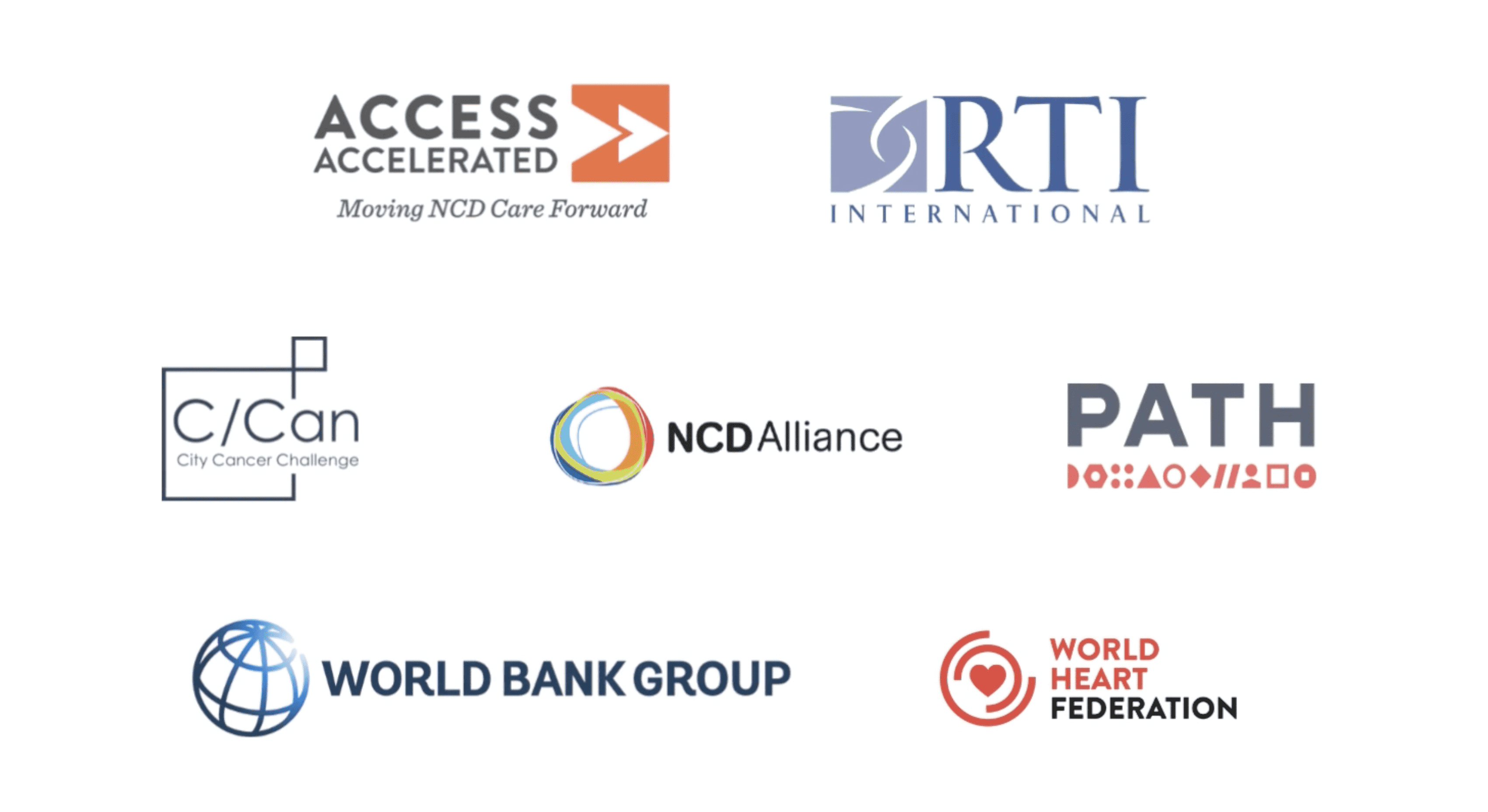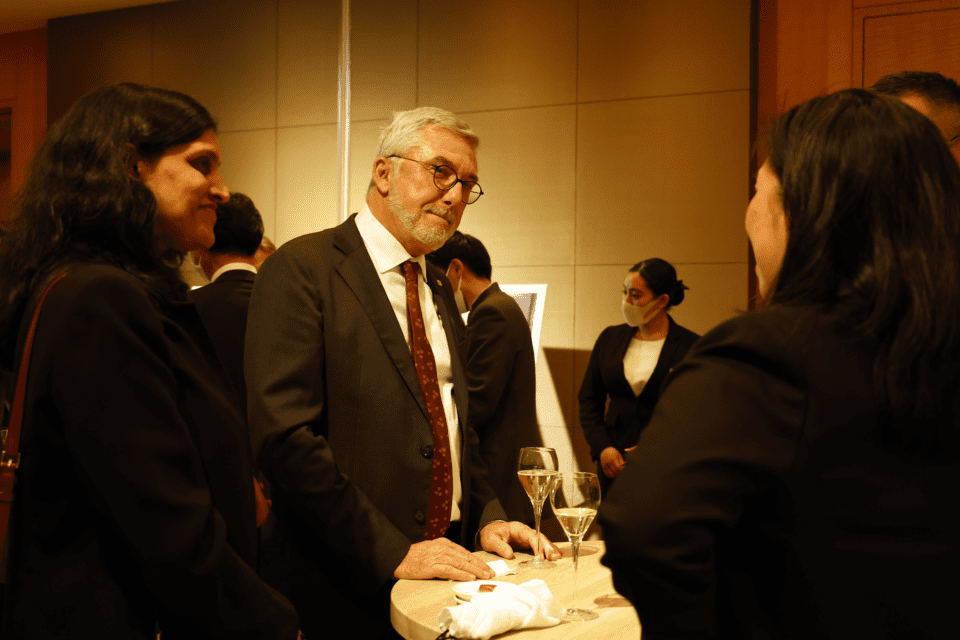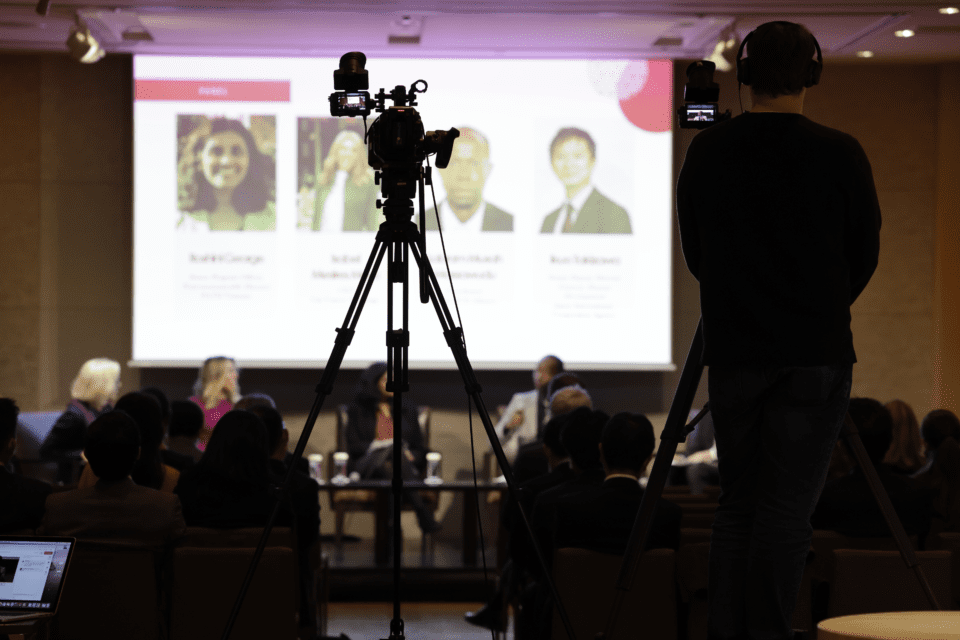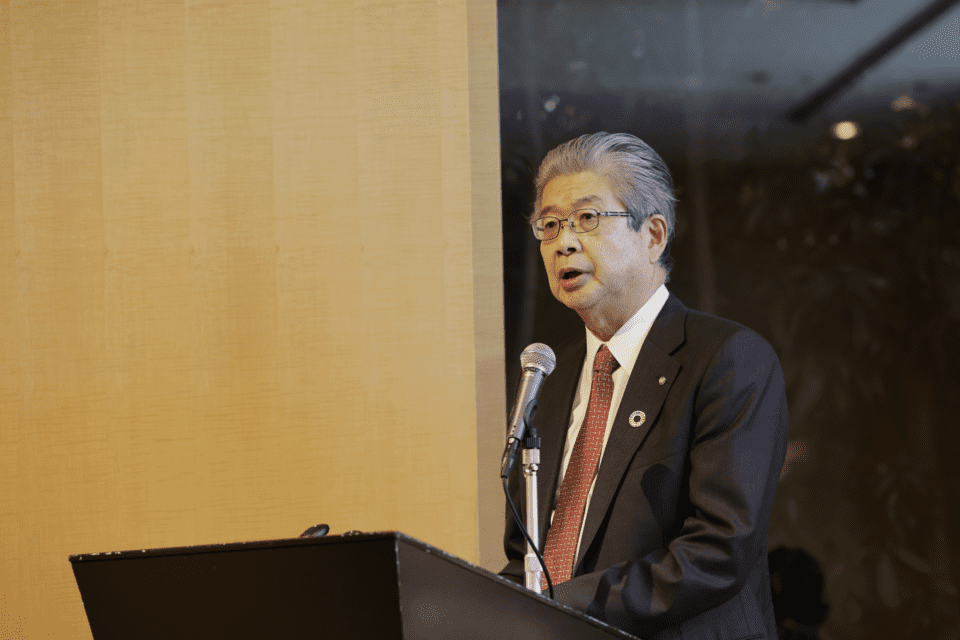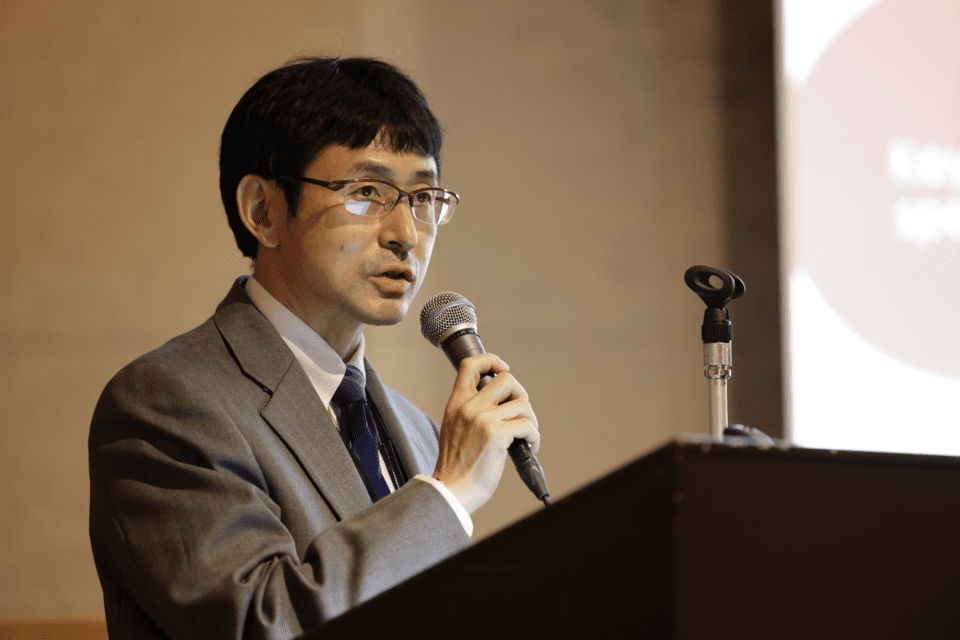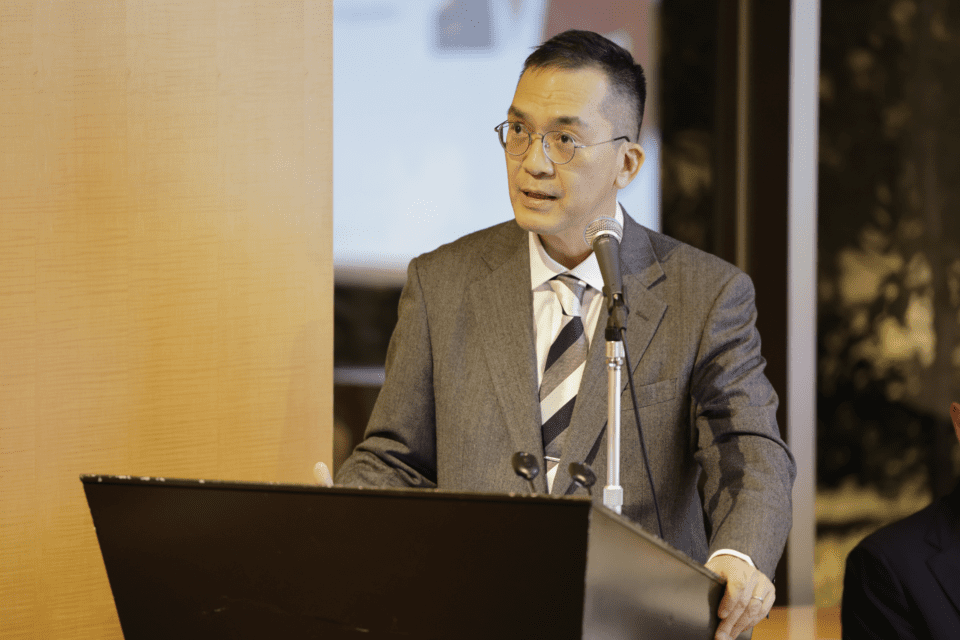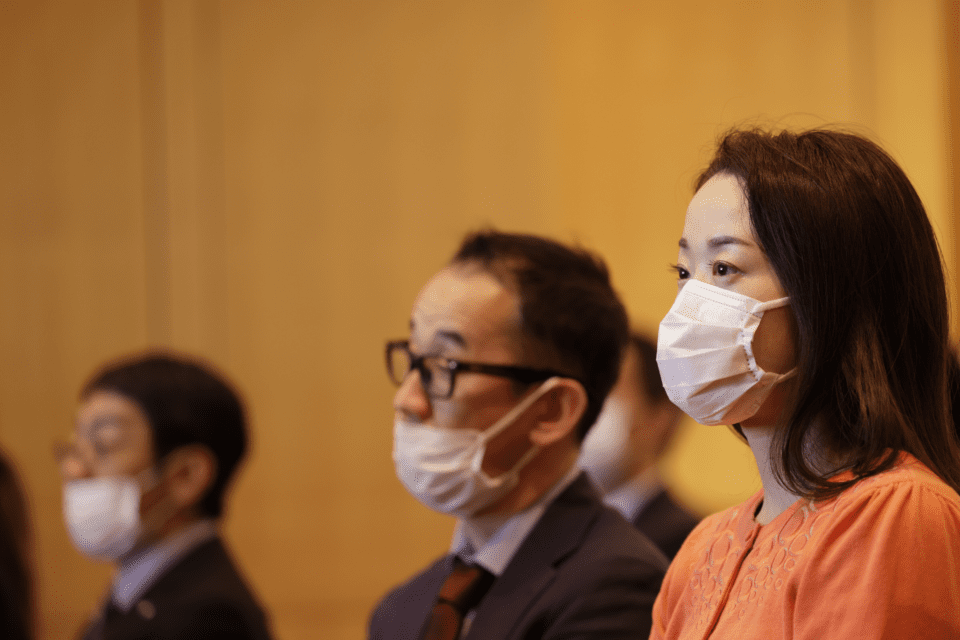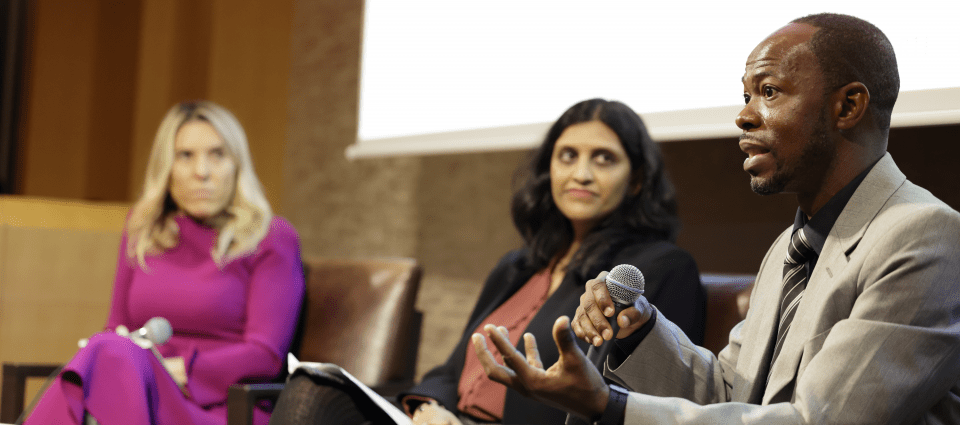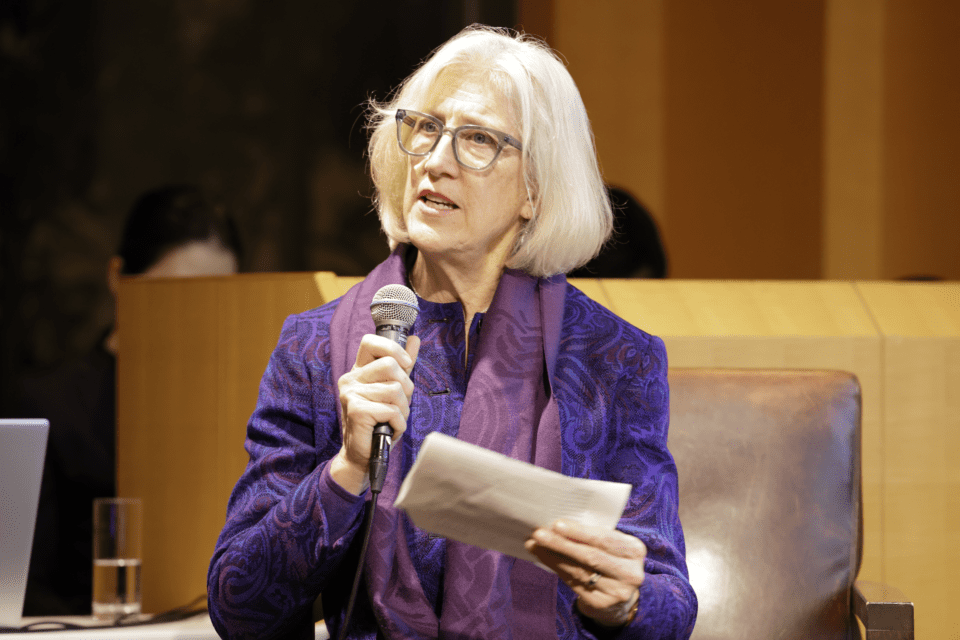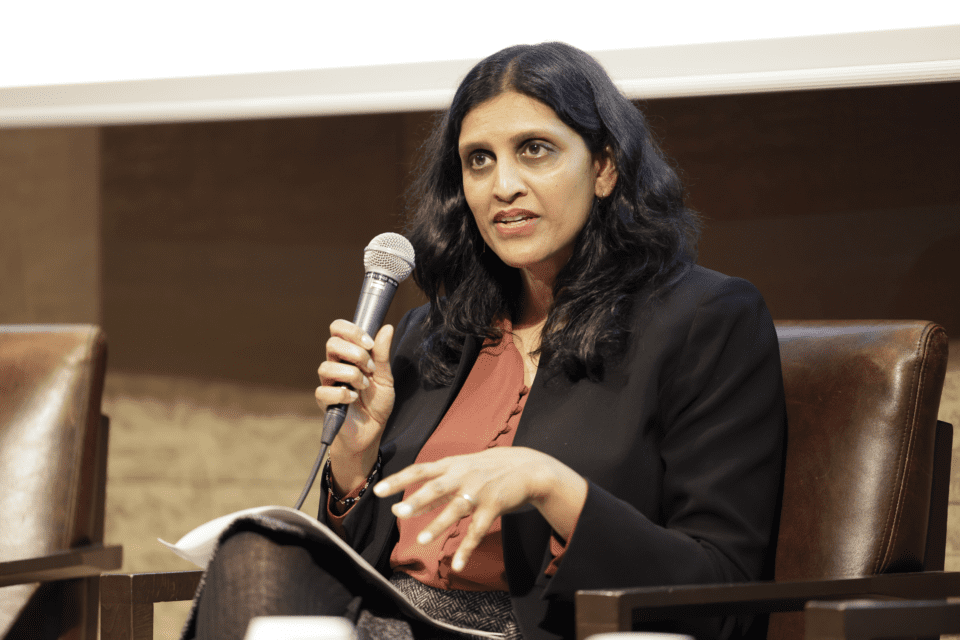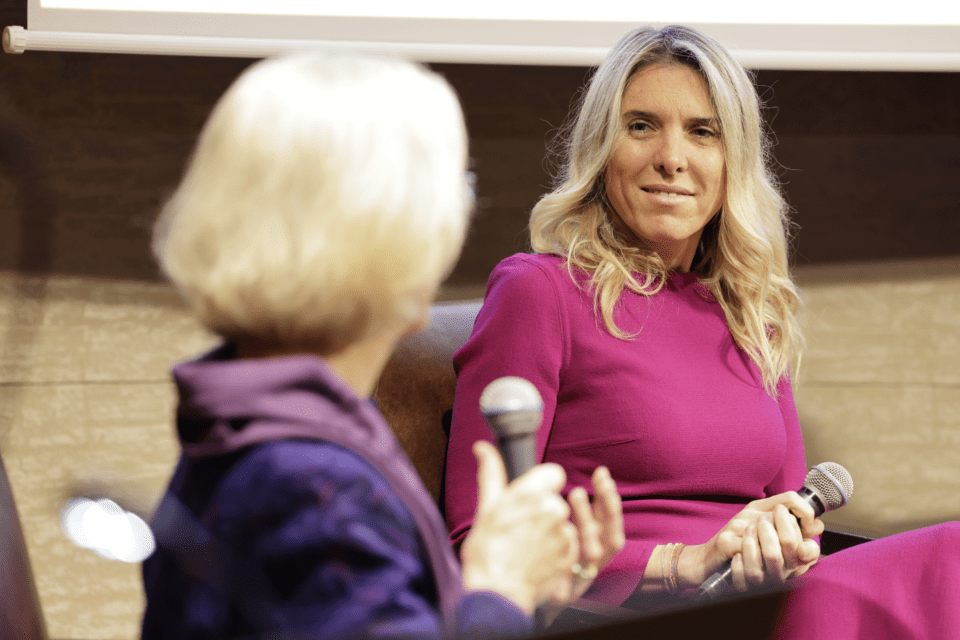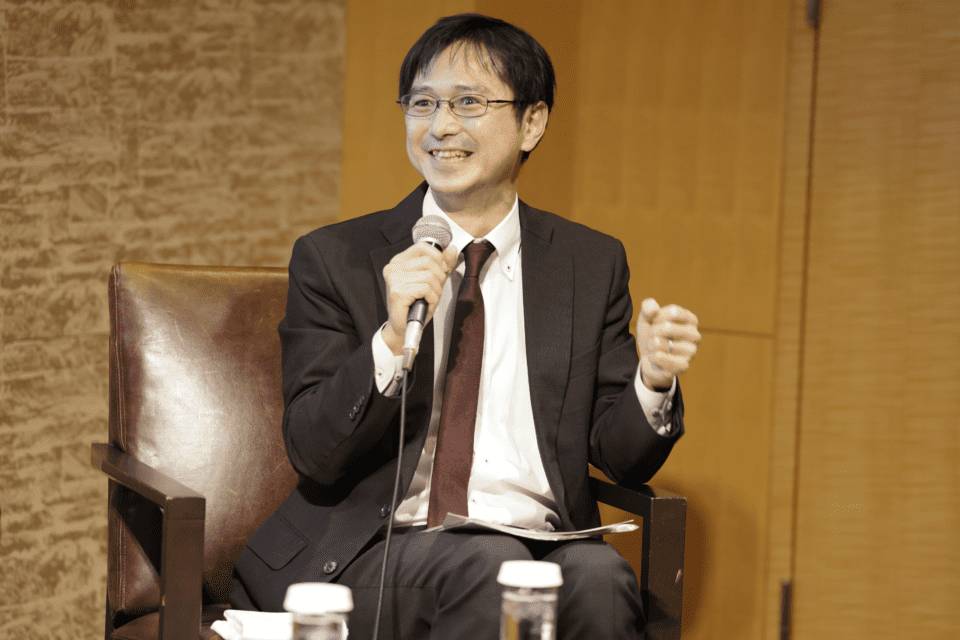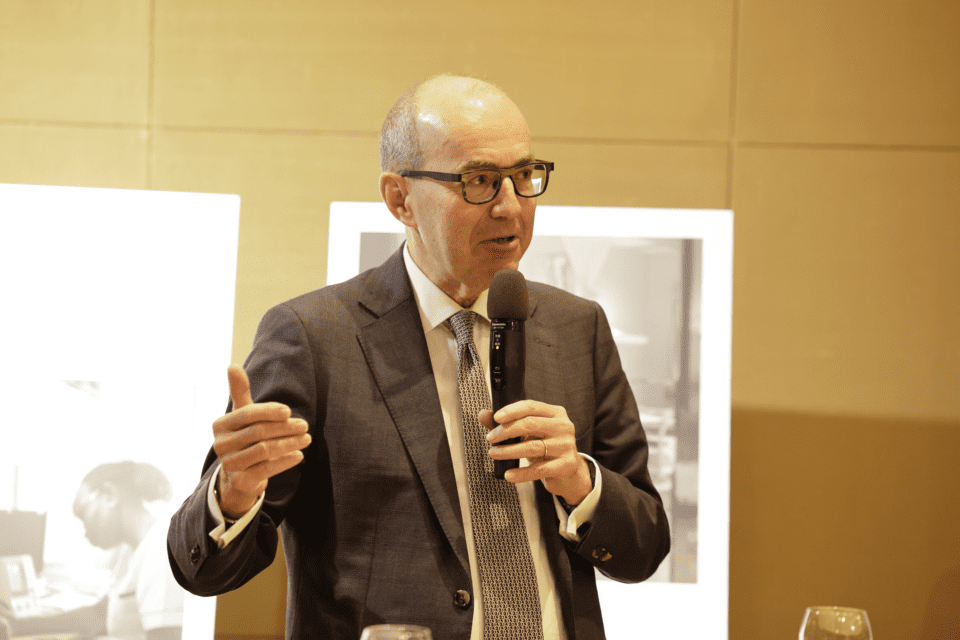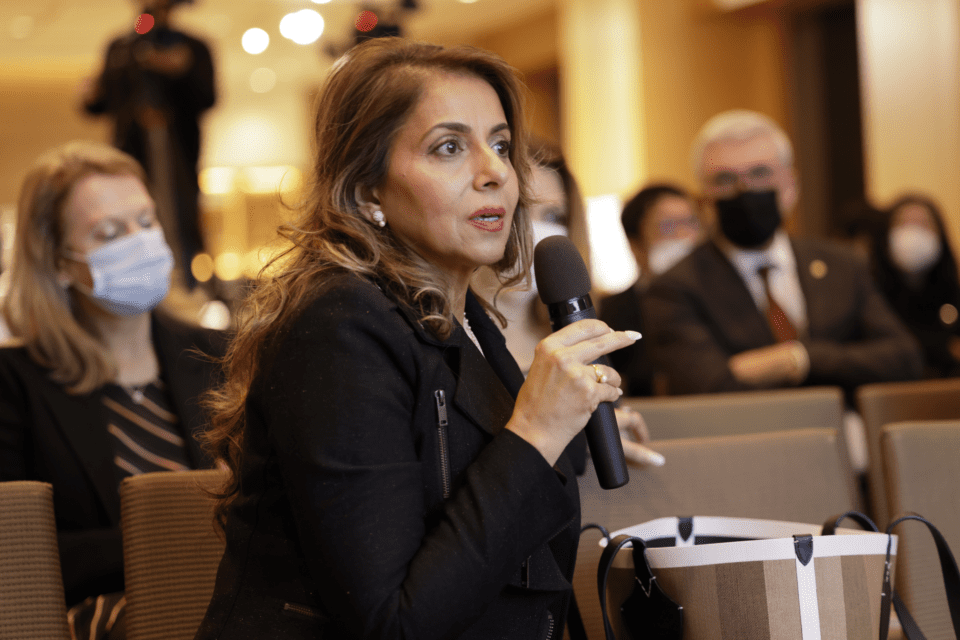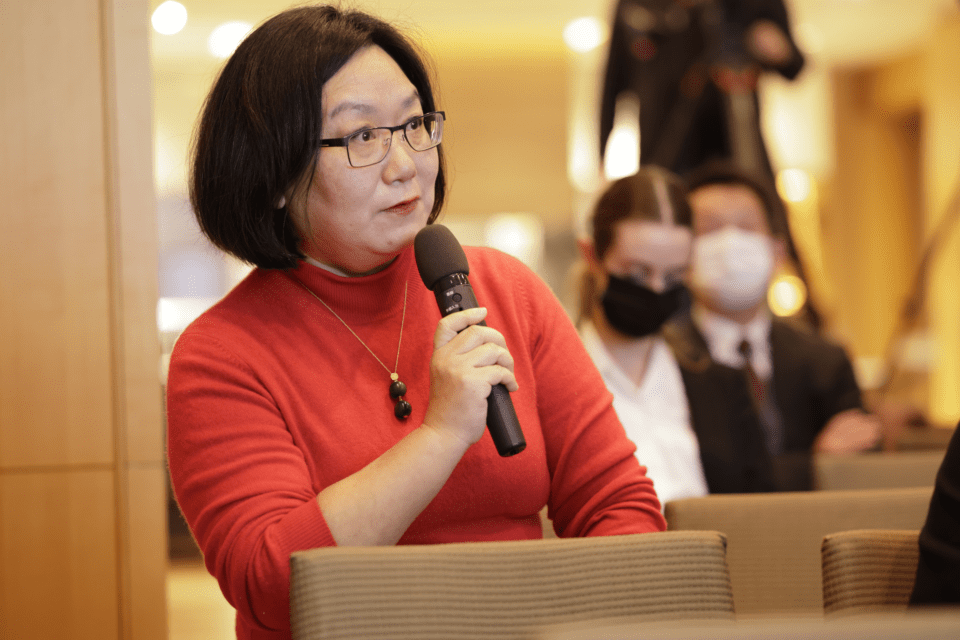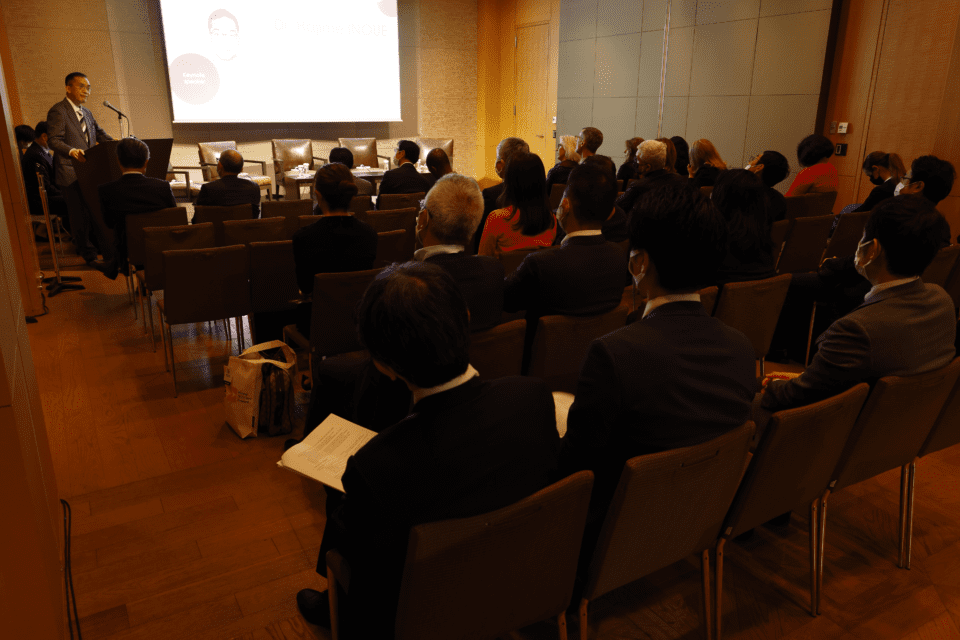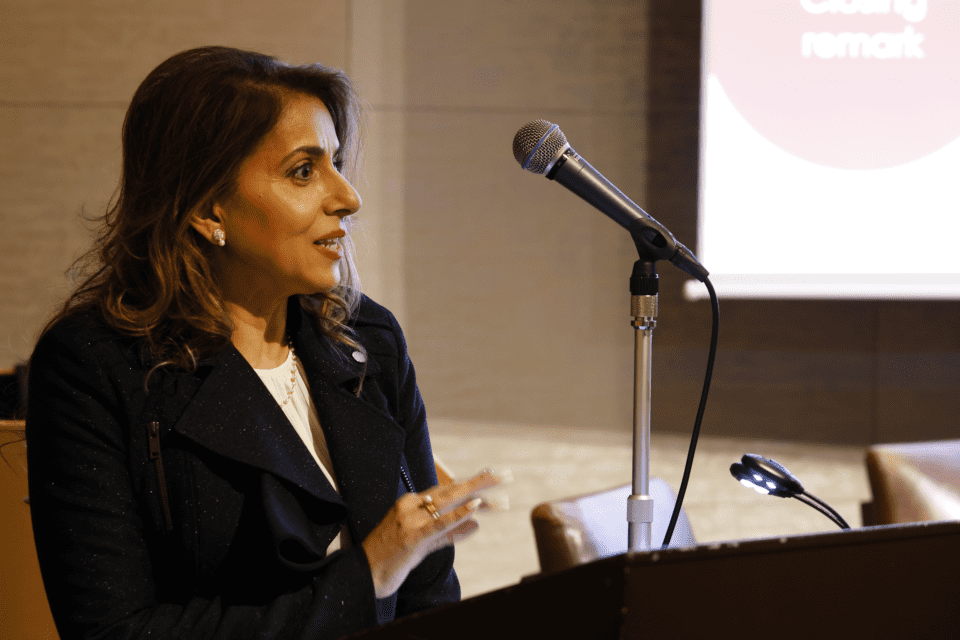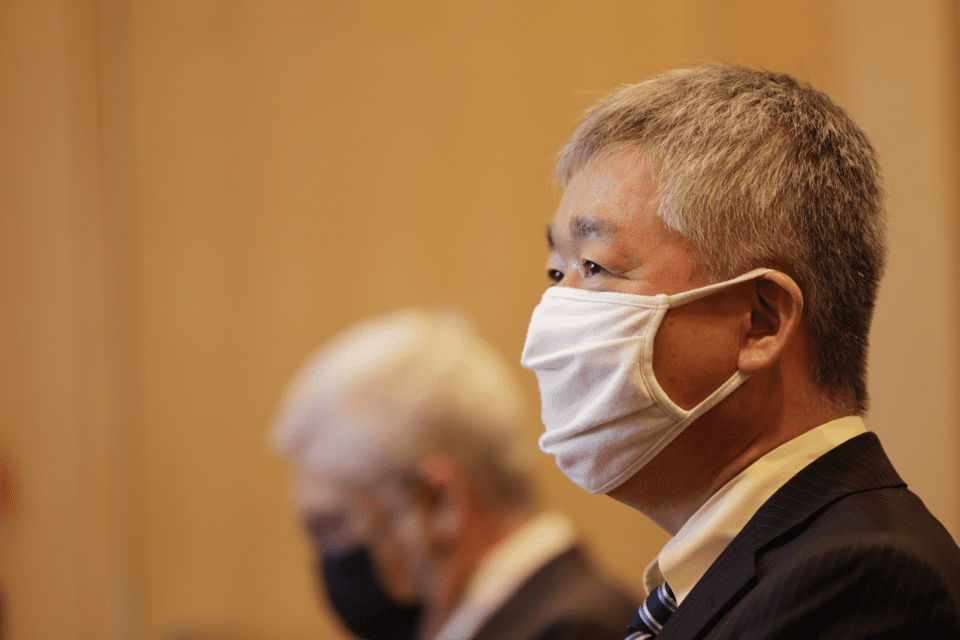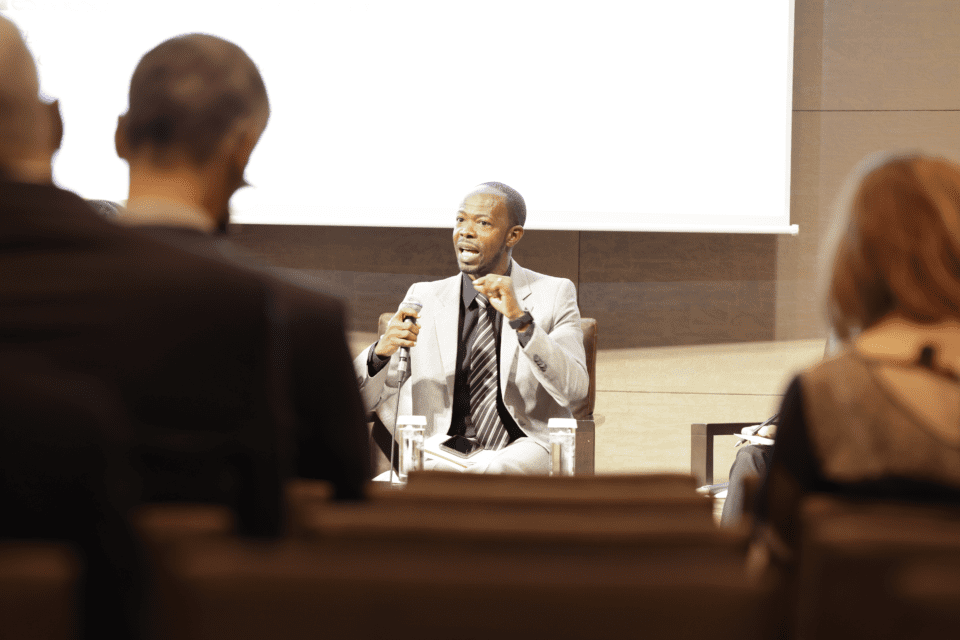Accelerating UHC: Critical lessons in scaling up access to NCD care to achieve Health for All
On December 13, 2022, Access Accelerated and its partners brought together health experts and leaders to Tokyo to help advance discussions and share critical lessons learned on accelerating Universal Health Coverage (UHC) through a strengthened NCD response.
Download Key Takeaways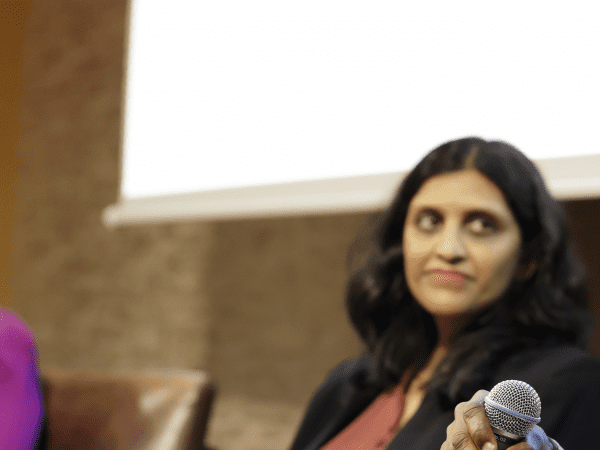
Progress on NCDs and UHC are both critical drivers in achieving the 2030 global goals. However, their complexity means that there is no one silver bullet in addressing these dual intertwined issues. Evidence shows that solutions work, and there are opportunities to scale these solutions for greatest impact. It begins with political commitment, evidence-based policies, a dedicated budget line, prioritization of skilled human capital and an approach that embraces integrated, coordinated and collective action.
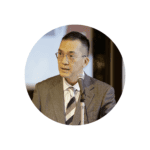
“Incorporating NCDs into the UHC agenda is essential. We must work to make health systems more resilient to shocks and agile enough to adapt rapidly to changing circumstances.”
The discussions took place at a time when UHC is squarely in the global spotlight. Hiroshima is set to host the G7 Summit in May, with UHC figuring prominently on the agenda, and that will be followed by the second-ever UN High Level Meeting on UHC in September. Together, these events signal a growing desire among experts and world leaders to take decisive steps toward addressing UHC. Speakers and panelists addressed a room packed with attendees from Japan’s leading NCD and health organizations, with many more tuning into the livestream, which was broadcast globally.
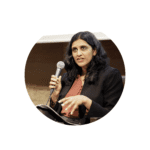
“Without a strong foundation of primary health care to address growing gaps in essential health services, the most vulnerable communities will remain most susceptible to any threat – whether local or global in scale – to their health and well-being.”
Related news
Leaders and experts assemble in Tokyo to advance discussion on UHC and reducing NCDs
Event marks Universal Health Coverage Day and comes ahead of next year’s UN High Level Meeting on UHC and Hiroshima G7 Summit
Why we won’t fully realize Universal Health Coverage without addressing the challenge of Noncommunicable Diseases
With over 60% people living with noncommunicable diseases experiencing catastrophic health expenditures, a new blog post from the World Bank and Access Accelerated looks at the imperative of a strengthened NCD response.
Speakers
Martin Bernhardt

Dr Sunao Manabe
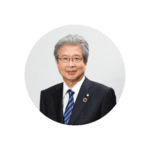
Mr Tokio Ozawa

Dr. Hajime Inoue

Dr Rachel Nugent
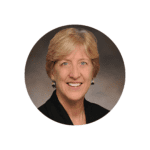
Roshini George

Labram Musah Massawudu
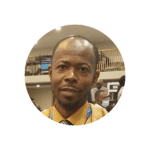
Isabel Mestres

Ikuo Takizawa

Saba Husain

Thomas Cueni

Event Host
Director, Access Accelerated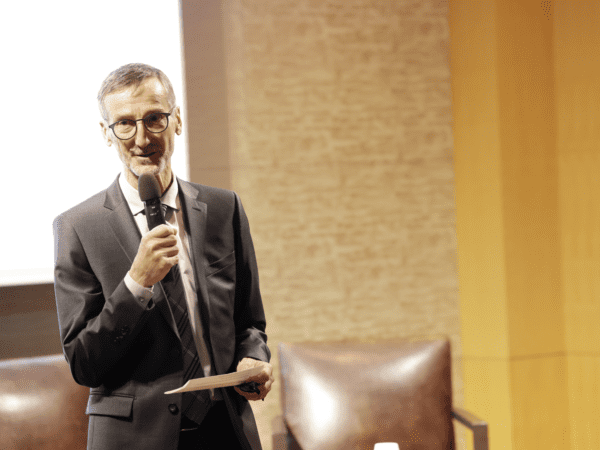
Martin Bernhardt is the Director of Access Accelerated, leading overall strategy and implementation for this multi-year initiative. A social and economic scientist with over 20 years of experience in pharmaceuticals, Martin is a lecturer of Health Economics and Politics at Geneva University’s School of Pharmaceutical Sciences.
Opening speaker
CEO, Daiichi SankyoSunao Manabe is the current President and CEO of Daiichi Sankyo Co Ltd since June 2019. From April 2017 to June 2019, he served as President and COO. Previous to this role, he was promoted to Executive Vice President in April 2016, responsible for the General Affairs & Human Resources Division as well as the Medical Affairs Division. He brings in more than 40 years of experience in the pharmaceutical industry with many kinds of fields, including as Vice President of Medicinal Safety Research Laboratories; Vice President of the Global Project Management Department; Head of Group HR & CSR; Vice President of Corporate Strategy Department; President of the Japan Company; Head of Business Intelligence Division; Director of Daiichi Sankyo Co Ltd, Senior Executive officer and in charge of Global Sales & Marketing. He has been appointed President of The Federation of Pharmaceutical Manufacturers Association of Japan since May 2021. Dr. Manabe received DVM degree in 1977 and PhD degree in 1988 from Veterinary Science, the University of Tokyo.
Keynote speaker
Deputy Assistant Minister International Policy Planning in Japan’s Ministry of Health, Labour and WelfareTokio Ozawa is currently in charge of the management of international policy planning with a focus on the health and welfare sector at the MHLW. His work experience includes policy planning and implementation of public pensions, infectious disease control and prevention, child care support, child abuse prevention, financial services, food sanitation, elderly long-term care, healthcare systems, health insurance, labor insurance, and health crises management including the response to the COVID-19 pandemic.
Keynote speaker
Advisor, Health Nutrition and Population program, World Bank GroupDr Inoue started his professional career as paediatric resident in Tokyo and then served as a field officer in the rural Philippines while working for the Maternal and Child Health program. After post-graduate study in public health, specialising in global health, Dr Inoue joined Japanese Ministry of Health, Labour and Welfare in 1996, where he acquired a wide range of technical experience in public health, including hospital management, health insurance, pharmaceutical regulation, infectious disease control, and others. Dr Inoue has previously worked in the secretariat of the WHO Regional Office for the Western Pacific, and has also served as a member of the governing bodies of WHO, the Global Fund, UNAIDS and IARC.
Event Chair
Vice President for Global Noncommunicable Diseases, RTI International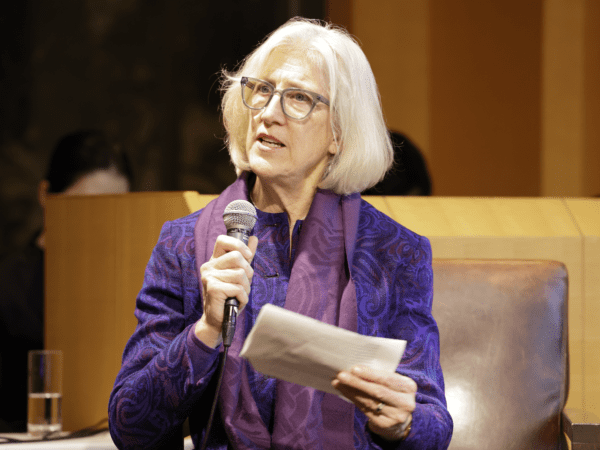
Rachel is Vice President for Global Noncommunicable Diseases at RTI International. She has more than 30 years of experience in global development as a researcher, practitioner, and policy advisor to governments. She leads a team charged with providing policy analysis, implementation, and evaluation of cost-effective strategies to prevent and control global noncommunicable diseases. Dr. Nugent is a member of the Lancet Commission on Noncommunicable Diseases and Injuries of the Poorest Billion, the U.S. Institute of Medicine Committee on Economic Evaluation, and the International Expert Group for the Global Nutrition Report. She also works with the World Health Organization Global Coordination Mechanism Working Group on Noncommunicable Disease Financing and is on the External Advisory Committee of the NCD Alliance and Children’s Heartlink.
Panelist
Senior Program Officer, Noncommunicable Diseases, PATH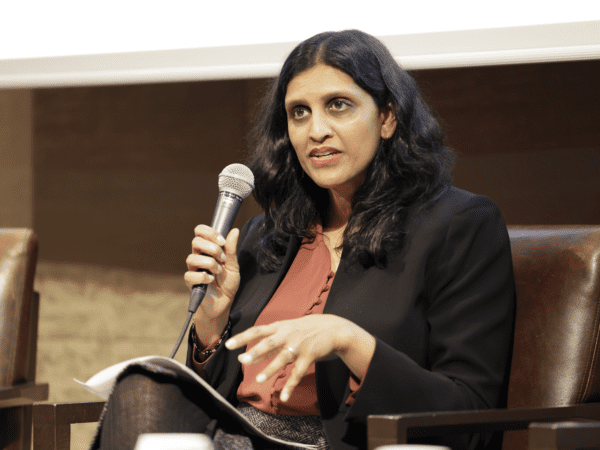
Roshini George has been at PATH for over 5 years and is Senior Program Officer for noncommunicable diseases (NCDs). PATH is a leader in global health innovation across platforms such as vaccines, drugs, diagnostics, devices, and system and service innovations and has built on this capacity to advance prevention and care for NCDs in low resource settings focusing on diabetes, hypertension, mental health, and breast and cervical cancer. Roshini supports the strategic direction, technical capacity, and implementation of PATH’s NCD portfolio across several countries including Ghana, Kenya, Tanzania, Rwanda, Senegal, Uganda, India, and Vietnam with projects including improving access to NCD care; availability of affordable NCD medicines and products, and capacity building to support NCD care within communities. Roshini also supports PATH’s work as Secretariat for the Coalition for Access to NCD Medicines and Products, a global multisectoral Coalition focused on addressing access barriers to essential medicines and products for NCDs.
Closing speaker
Coordinator, Ghana NCD AllianceLabram M. Musah is a public health enthusiast who believes that with intentional policy restructuring, the socioeconomic and health consequences of NCDs in Ghana and beyond would be a thing of the past. Labram is currently the National Coordinator of the Ghana NCD Alliance; working diligently to mobilize multi-stakeholder advocacy efforts towards the adoption of alcohol and food policies that protects people who are at risk of or living with NCDs. He doubles as the Executive Director of Programs of the Vision for Alternative Development (VALD-Ghana), the leading organization advocating for stringent tobacco control and alcohol measures as well as road safety and climate change measures in Ghana. With his proven predisposition to make impact, he serves in other leadership capacities; he is a member of the Framework Convention Alliance, Africa NCDs Network, Africa Tobacco Control Alliance, Ghana Alcohol Policy Alliance, Corporate Accountability etc. He sits on the National Multi-sectoral Steering Committee on NCDs and recently elected to the board of the Movendi International.
Panelist
CEO, City Cancer Challenge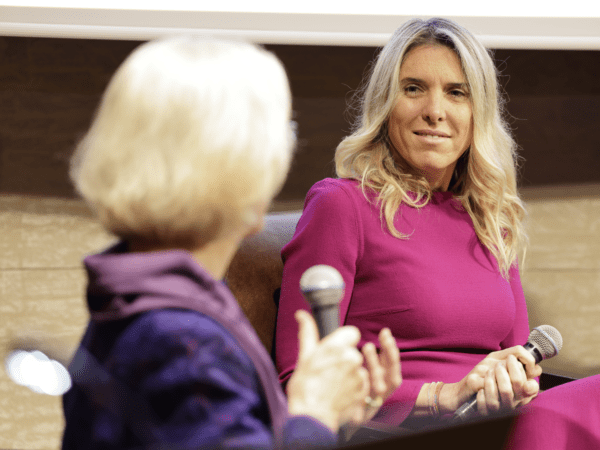
Part of the founding C/Can team, Isabel is the CEO of City Cancer Challenge and previously served as Director of Global Public Affairs. Over the last five years she has been instrumental in converting more than 70 projects in 13 C/Can cities into engines to accelerate access to quality cancer care. Formerly, she held leadership positions at the Union for International Cancer Control, serving as Director of Membership and Partnership Development, where she developed and implemented an award-winning membership growth strategy and a sustainable, high-value public-private partnership model that resulted in a tenfold increase in corporate, civic, and public sponsorship engagements.
Panelist
Deputy Director General, Human Development Department, Japan International Cooperation Agency (JICA)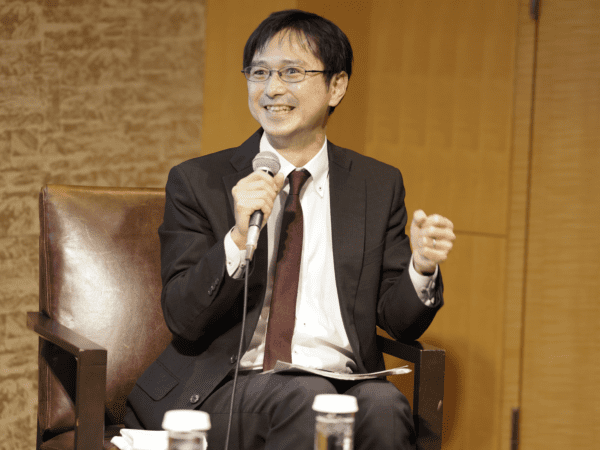
Ikuo Takizawa graduated from the University of Tsukuba, Japan in March 1992 with a B.A. in International Relations and then obtained his M.Sc. in Population and International Health from the Harvard School of Public Health in June 1998. He joined the Japan International Cooperation Agency (JICA) in April 1992 and has since been involved in JICA’s health and health-related projects in Asia, Latin America and Africa for more than 25 years. He worked in JICA Philippines between 2001 and 2005 as an assistant resident representative in charge of health, education and local governance. Between 2008 and 2010, he served in JICA Kenya as a regional project formulation advisor for health and was involved in designing, monitoring and evaluating JICA’s health projects in Africa. Currently, he serves as deputy director general of the Human Development Department and oversees JICA’s health portfolio in Africa, the Middle East and Europe, and Latin America. Technically, he supervises JICA’s operations in health systems strengthening including Universal Health Coverage (UHC) and infectious diseases control covering health emergency preparedness and response.
Closing Speaker
Senior Director, Global Health Partnerships, Eli Lilly and Company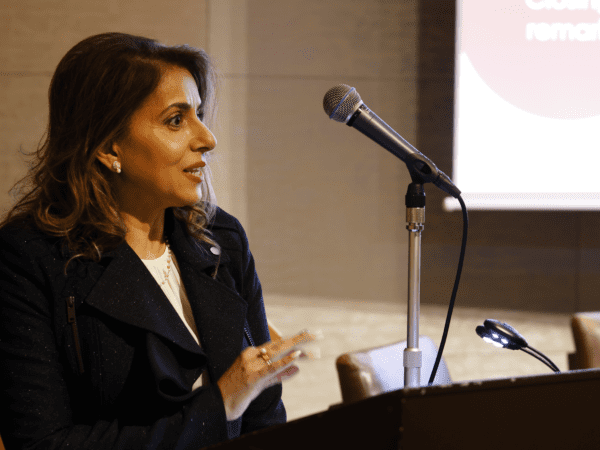
Saba currently supports Lilly’s global health partnerships portfolio and global health external stakeholder engagement. She also has oversight for philanthropic product donations, which includes long-standing partnerships, humanitarian crisis response, disaster preparedness. Saba works closely with the President, Lilly Foundation/Associate VP Social Impact and Corporate Affairs functions.
Saba joined Eli Lilly in 1999, contributing to early drug discovery in diabetes and obesity. In her previous role in CMC Project Management, Saba provided leadership to her team in support of diverse, complex, and highly accelerated biomedicines portfolios. Saba also brings key strengths to the organization as an inclusive leader, a trained Six Sigma Black Belt, and years of experience in External Innovation building academic and Biotech global partnerships for communicable and non-communicable diseases.
Reception Address
Director General, IFPMA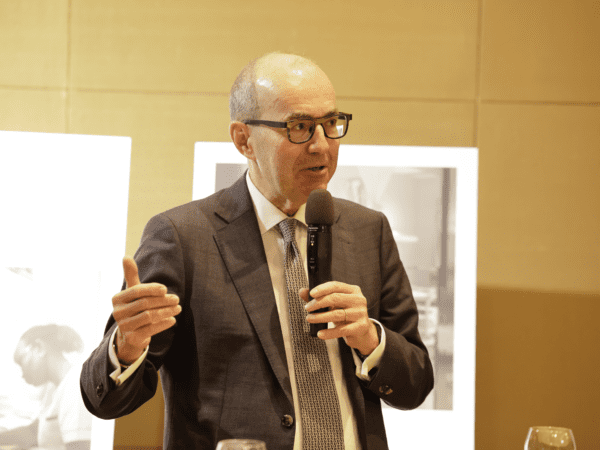
Thomas Cueni is Director General of IFPMA, the global association of pharmaceutical research companies, based in Geneva and is Secretary of the global Biopharmaceutical CEO Roundtable (BCR). In this capacity, Thomas Cueni was instrumental in creating the AMR Action Fund, a collective venture, launched in July 2020, to bridge the current gap in funding for the development of new antibiotics. Thomas Cueni represents the innovative biopharmaceutical industry on the ACT Accelerator, the Access to COVID-19 Tools (ACT) Accelerator, a unique global collaboration to accelerate development, production, and equitable access to COVID-19 tests, treatments, and vaccines. Thomas Cueni is Chair of the Business at OECD Health Committee, and also serves as Industry Co-Chair of the APEC Biopharmaceutical WG on Ethics. Furthermore, he is Chair of the Board of the cross-sectoral AMR Industry Alliance, a group committed to tackling the threat of antimicrobial resistance, which includes more than 100 companies and associations representing Rx pharma, generics, biotech, and diagnostics. Prior to joining IFPMA he was Secretary General of Interpharma, the association of pharmaceutical research companies in Switzerland, and for many years was a member of the Board and Chair of a key committee of the EFPIA.
WITH THANKS TO
